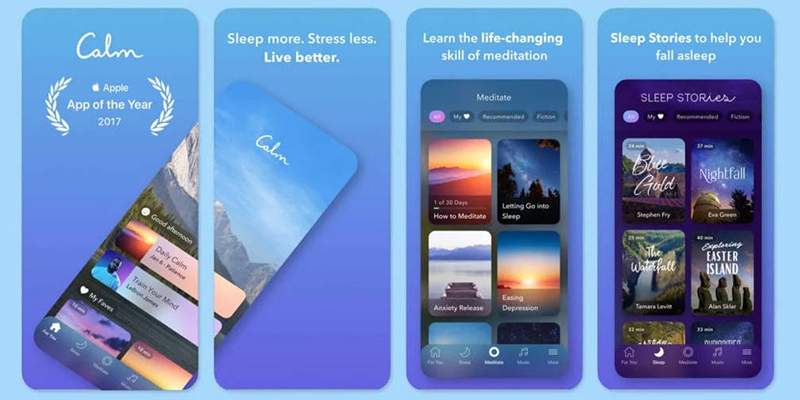How To Overcome Sleep Anxiety With Proven Techniques
When your head hits the pillow, does your mind race with worry? You're up at 3 a.m. worrying about how long until you can close your eyes again.
You are not alone if you're nodding along. Many of us wake up to sleep anxiety, a phenomenon in which the fear of not sleeping well keeps us up. But here's the good news: you don't have to do it alone.

Learn how to defeat sleep anxiety with sleep-promoting techniques that will lull you to restful nights and peaceful dreams.
Before digging into solutions, though, let's look at the issue closer. It's not only trouble sleeping but also anxiety around sleep itself. This Stress and wakefulness cycle can leave you too tired the next day, and it is the pressure to fall asleep.
Common Signs of Sleep Anxiety:
Racing thoughts at bedtime.
Fear of sleeplessness or poor sleep quality.
Shallow Breathing like a pounding heart.
Frequent waking up during the night
These could be you, and it’s time to find ways to break the vicious cycle of sleep anxiety.
Breathing Techniques: Calm The Mind, Calm The Body
Breathing isn't automatic; it's a powerful relaxation tool. Practising sleep anxiety relief through controlled Breathing. It is a sign for your brain to relax when anxiety hits.
4-7-8 Breathing Technique:
Breathe through your nose in 4 seconds.
Hold your breath for 7 seconds.
Slowly breathe out through your mouth for 8 seconds.
This method slows your heart rate, activates your parasympathetic nervous system, and puts you to sleep.
Diaphragmatic Breathing:
Lay down and place one hand on your chest and the other on your belly.
Inhale deeply…your belly rises, your chest doesn’t.
Keep repeating until you feel your body relax.
Create a Sleep Sanctuary
Is your bedroom helping or hurting your sleep? Your surroundings are crucial in overcoming sleep Stress and cultivating restful nights.
Declutter and Darken:
Keep your room clean and free of distractions. Invest in blackout curtains to block out light. Cool and Comfortable:
Studies suggest a room temperature between 60–67°F is ideal for sleep. Use breathable fabrics and a supportive mattress.
The Power of Scents:
Incorporate calming scents like lavender through diffusers or pillow sprays. Aromatherapy is a subtle yet effective tip for better sleep.
Break Free From The Blue Light Trap
While scrolling through or binge-shifting a series on your phone before bed may not seem harmful, blue lights from screens disrupt melatonin levels. To manage sleep Stress, create a strict screen-free bedtime routine.
Two Hours Before Bed:
Turn off screens and get your brain to wind down to a restful state. If this doesn't feel possible, put them on blue light-blocking glasses.
Try Analog Alternatives:
Relaxing activities like reading a book, journaling, or meditation are what you should pick.
Cognitive Behavioral Therapy For Sleep Anxiety
To overcome some sleep disorders, when anxious thoughts overtake you at night, sometimes you need a mental reset. Existing as a gold standard for CBT-I (Cognitive Behavioral Therapy for Insomnia) has enabled individuals to learn how to identify and change those negative thought patterns that perpetuate being awake.
Challenge Catastrophic Thinking:
So, if you're lying in bed worrying about tomorrow, consider asking yourself, 'What's the worst thing that can happen if I'm tired?' The fear is often exaggerated.
Sleep Restriction Therapy:
This technique involves limiting your time in bed to only those hours you are actually sleeping and gradually teaching your brain that bed means rest, not Stress.
Leverage The Power Of Routine
Our bodies love rhythm. Establishing a consistent sleep schedule is one of the simplest yet most effective tips for better sleep.
The Same Sleep-Wake Cycle:
Go to bed and wake up simultaneously every day, even on weekends. Over time, this trains your internal clock to regulate sleep naturally.
Wind Down with Rituals:
Develop a soothing pre-sleep ritual like drinking chamomile tea, practising light stretching, or listening to calming music.
Nutrition And Supplements: Feed Your Sleep
What you eat and drink can directly impact your ability to overcome sleep anxiety. Foods to Embrace:
Magnesium-rich foods: Spinach, almonds, and bananas help relax muscles.
Tryptophan Sources: Turkey, eggs, and oats promote melatonin production.
Avoid Before Bed:
Caffeine: Skip coffee, tea, or chocolate late in the day.
Heavy Meals: Avoid eating large portions close to bedtime.
Supplements to Consider:
Melatonin: A natural sleep hormone that helps reset your sleep cycle.
Valerian Root: Known for its calming properties.
Consult with a healthcare provider before introducing new supplements.
Move Your Body, Calm Your Mind
Regular exercise is an underrated yet powerful strategy for relieving sleep anxiety. Physical activity improves overall health and helps regulate the body's Stress hormones.
Timing Matters:
Morning workouts promote better sleep, while evening workouts should end at least 3 hours before bedtime.
Relaxing Options:
Activities like Yoga and Tai Chi combine gentle movement with mindfulness, making them excellent choices for managing sleep Stress.
Guided Meditation And Sleep Apps
Are you struggling to turn off your thoughts at night? Guided meditation and sleep apps are excellent tools for overcoming sleep disorders and achieving a peaceful state.
Top Apps to Try:
Calm: Offers sleep stories and meditation exercises.

Headspace: Provides step-by-step meditation techniques for sleep anxiety.
Insight Timer: Includes free guided sleep meditations.
These resources create a soothing mental environment, helping you transition into restful sleep.
The Role Of Gratitude In Sleep
Sometimes, anxiety is about everything that goes wrong. Changing your mindset for gratitude could give you peace and help you get over your sleep anxiety.
Gratitude Journaling:
Before bed, write down three things you’re thankful for. This practice reframes your thoughts and shifts your focus to positivity.
Positive Affirmations:
Choose calming affirmations or say repeatedly, “I am safe,” “I can rest,” or “I release all worry for tomorrow.”
Besides being good for sleep, gratitude also transforms how you approach life.
Sleep, Stress, And You: A Journey Worth Taking
Sleep anxiety isn't about perfection; it's about progress. Combining the things that help you have restful nights—calm breathing and journaling your thoughts—every small step builds a path towards restful nights.
While you practice these techniques, remember that you can reclaim your nights and wake up refreshed and ready to face the day ahead.





